Metricon: ‘Crisis’ gripping building industry as big names fail
Metricon’s possible collapse is just the latest in the industry with a clutch of firms going bust, felled by a ‘perfect storm’ of problems putting billions at risk.
The Australian building industry is now in full on “crisis” mode with warnings the country’s biggest builder Metricon is on the brink of collapse.
If Metricon fails it will join a long line of recent construction collapses including big name firms such as Probuild and Condev.
A “perfect storm” of factors – from supply chain issues to instability caused by Covid – is smashing the industry leading major building projects worth billions of dollars to come to a grinding halt and to blow outs on some home construction projects by as much as $100,000.
On Wednesday, it was reported that Metricon was in emergency talks with clients after falling into financial strife just days after the sudden death of co-founder Mario Biasin.
RELATED: ‘Freaking out’: Metricon crisis spreads
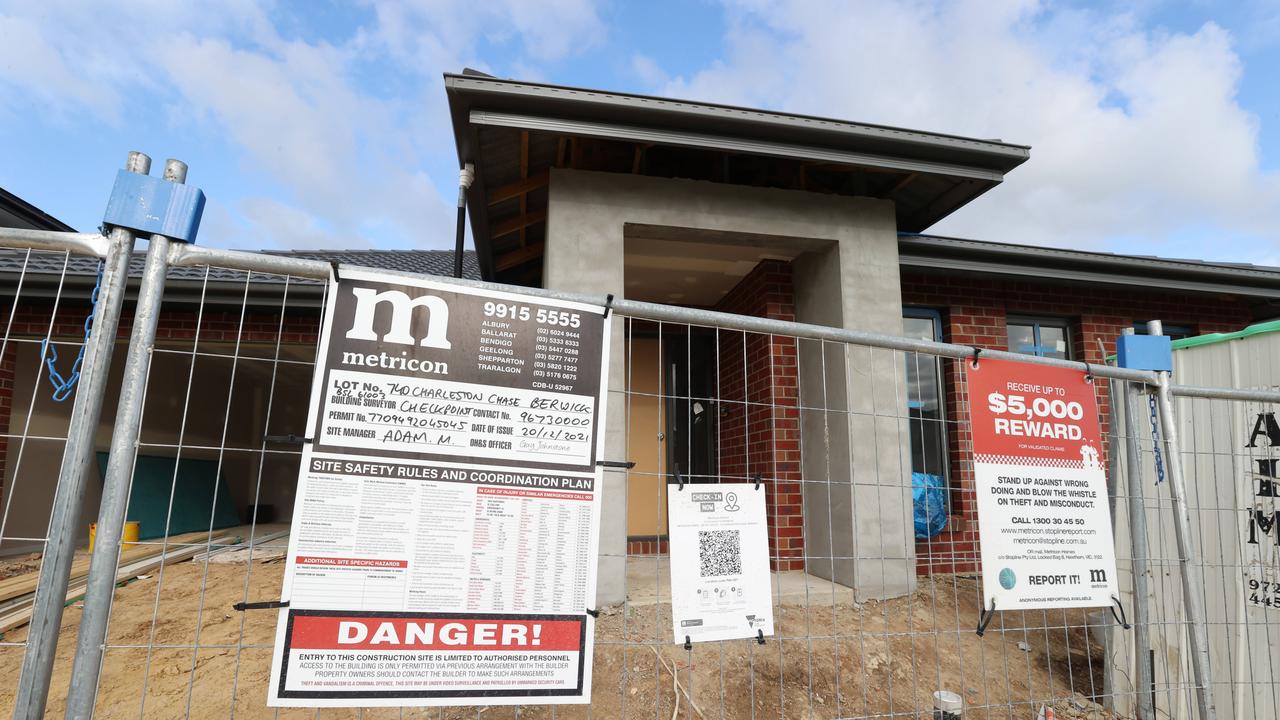
Metricon employs approximately 2500 staff, primarily in eastern Australia, where it has a pipeline of roughly 4000 homes under construction.
The company’s bosses are expected to meet with major clients including the Victorian Government on Thursday. Metricon is so large that the Daniel Andrews-led government sees it as too big to fail due to the thousands of direct and indirect jobs that rely on the firm.
Company memos seen by the Herald Sun have detailed concerns about cash flow. “It has come to crunch time,” one document is said to have stated.
Acting CEO Peter Langfelder denied the company had solvency issues and said the business continued to be viable.
“There is simply no basis to these rumours. Metricon is a strong viable business without any solvency problem,” he said.
RELATED: CEO died days before company’s crisis
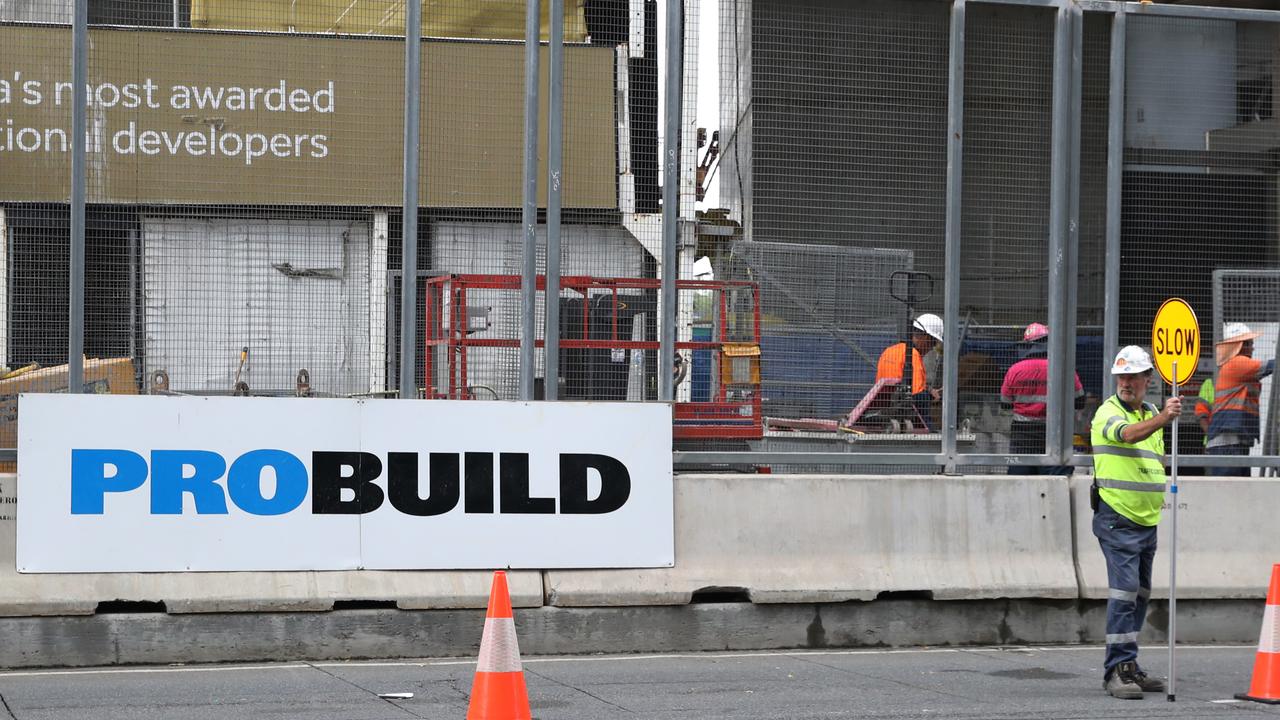
Construction industry in ‘crisis’
But the construction industry is in such poor shape it would be no surprise if another big name faltered.
Talking to news.com.au last week, general manager of commercial and property services at Equifax Scott Mason said there was now a hidden crisis in the industry.
“Rising costs, disrupted supply chains and periodic lockdowns have created a profitless boom, with many construction companies committed to projects that are no longer financially viable thanks to major price increases for building materials,” he said.
“While big name collapses like Probuild and Condev have recently been in the news, what doesn’t often make headlines are the impacts of these events on the small businesses that make up the bulk of construction companies in Australia.”
A building insider has told news.com.au that in the past 12 months, the ongoing bankruptcies of Australian builders has already added to the construction costs of single storey houses rise by $40,000 to $50,000, and for a double storey, had risen by $60,000 and $100,000.
“Builders are not here to gouge clients, the fact is they if don’t get more money they might not be here to finish a house,” he said.
Several major construction firms have gone to the wall in the last year.
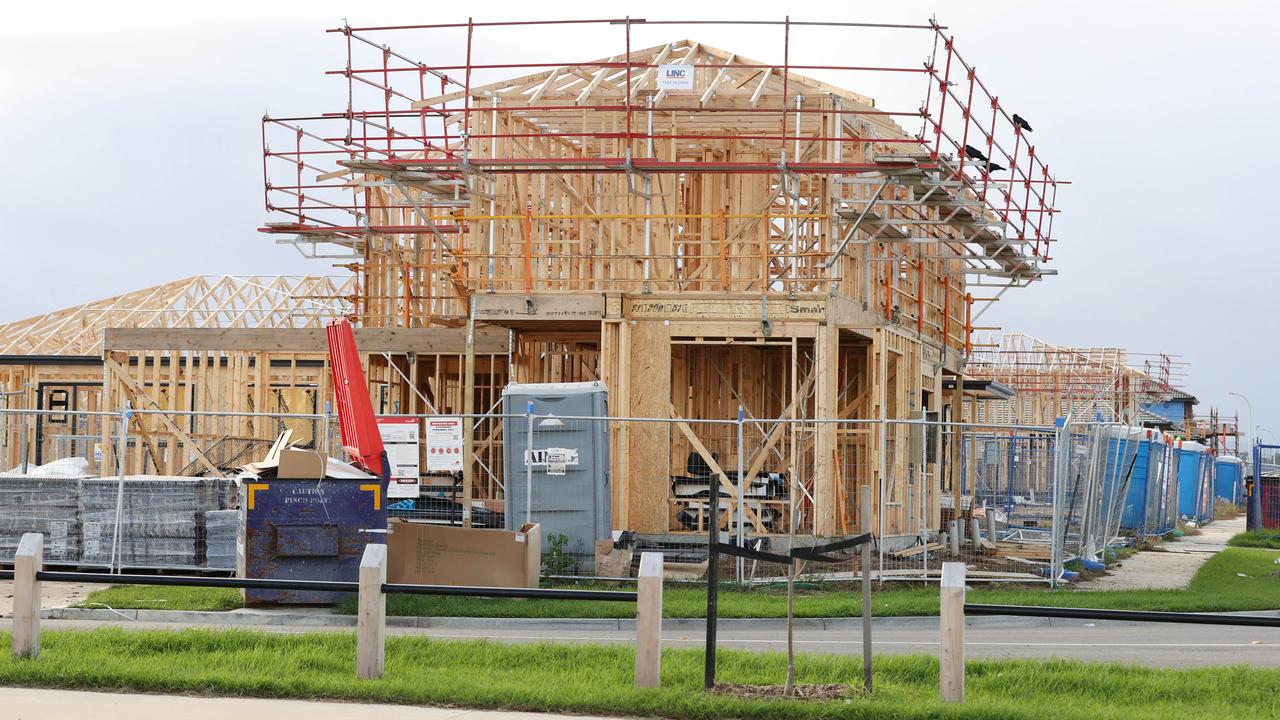
Notable builders that have gone bust
Probuild
In February, Probuild collapsed after its South African parent firm WBHO pulled all its financial support.
WBHO said it had bailed out the Australian arm of the business with up to $183 million over the past four years which had “severely depleted” its resources.
It blamed pandemic restrictions and lockdowns for costly project delays.
“The Australian government’s hard-line approach of managing Covid-19 through a combination of border restrictions, snap lockdowns and mandatory work-from-home regulations for many sectors, has had a considerable impact on property markets as well as other industries such as the leisure industry,” WBHO said in a statement.
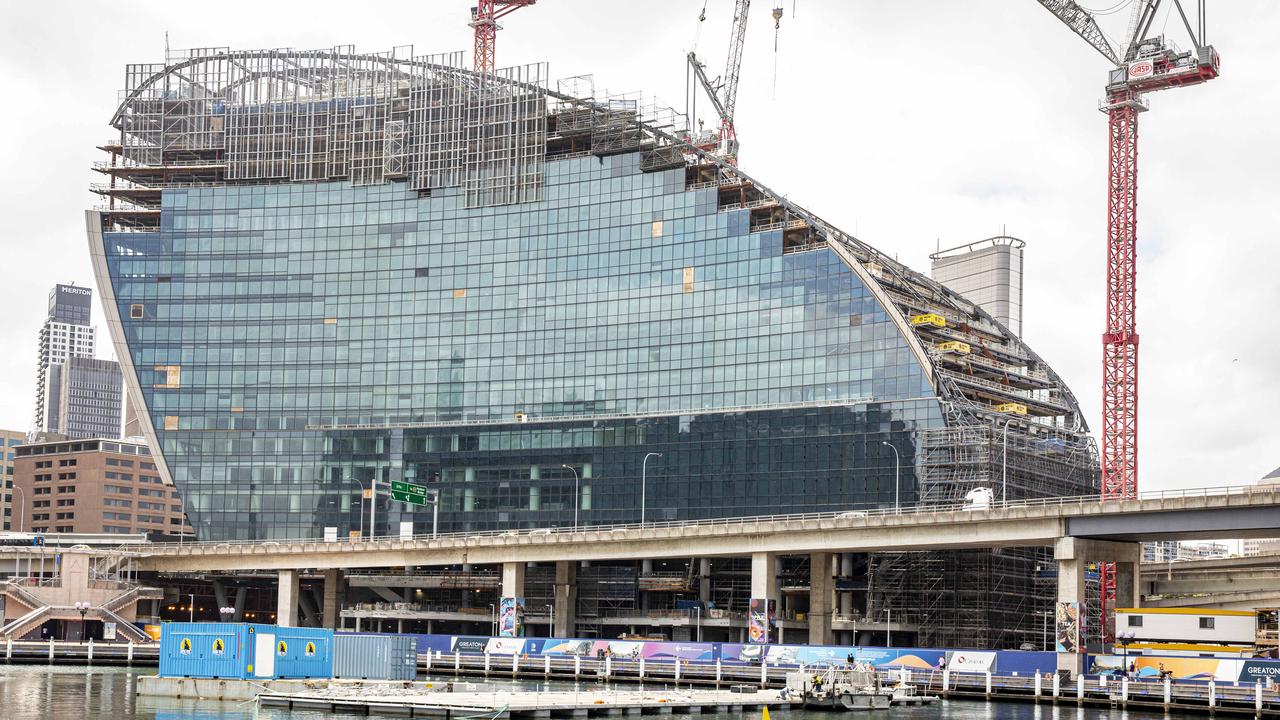
At the time, Probuild was developing 13 major projects in Victoria, three in New South Wales, one in Queensland and one in Western Australia with at least $5 billion.
These included the high profile $1bn Ribbon development in Sydney’s Darling Harbour precinct which is to feature a W Hotel across 25 floors and a new IMAX theatre.
The project was on the verge of completion when the site was closed due to Probuild's failure.
Probuild was also building the landmark 433 Queen St project in Brisbane and the $2bn West Side Place project in Melbourne.

Condev
A month after Probuild's collapse, Gold Coast builder Condev went down.
Co-founders Steve and Tracy Marais were unable to secure a reported $25 million bailout from developers to deal with rising building costs and Covid delays.
The pair choked back tears as thy announced the collapse.
Notable projects in Condev’s reported $1 billion development pipeline included the Cannes Waterfront in Surfers Paradise, The Brookes Residences in Varsity Lakes, Natura and Brake Street both in Burleigh, and the Jindi Apartments in Palm Beach.
Ms Marais said other companies in the industry would soon face the same fate as Condev.
“I don’t think potentially, I think for sure,” she said.
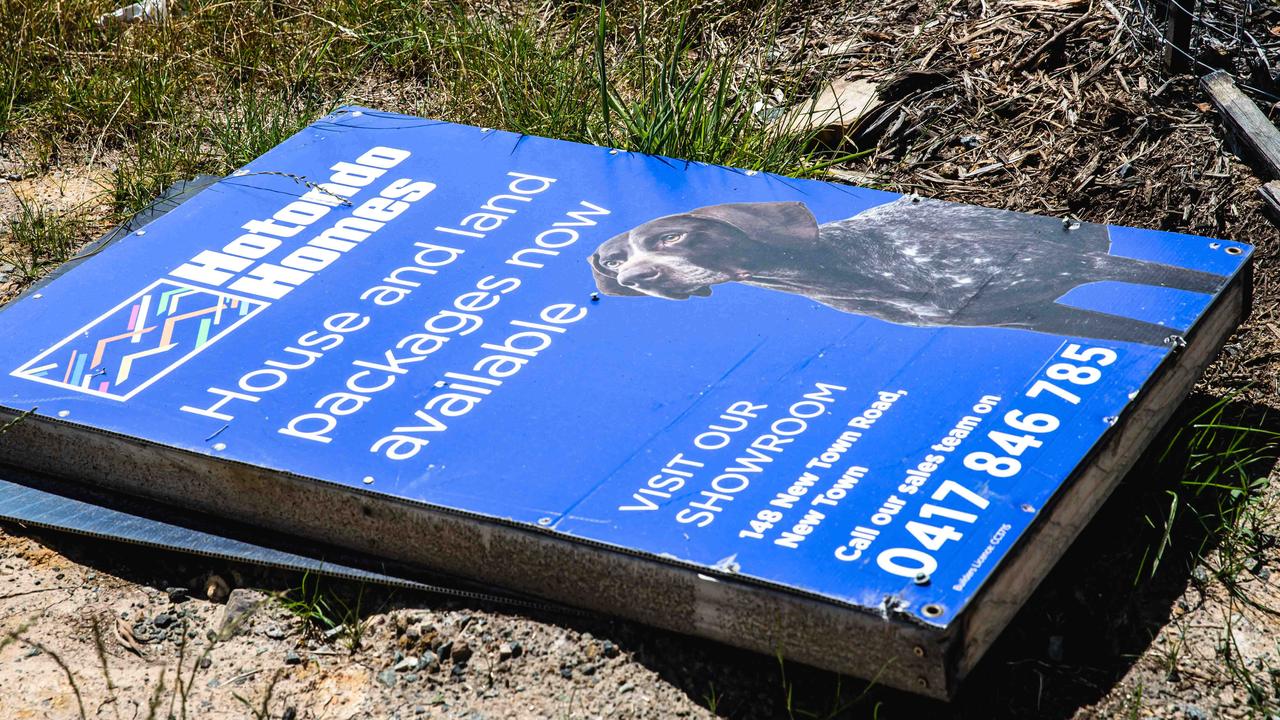
Hotondo Homes Hobart
In January, the Tasmanian builder that owned Hotondo Homes Hobart collapsed leaving families hoping to move into new homes out of pocket and fearing they would be homeless.
As many as 80 contractors and 40 customers were in limbo with unfinished homes.
Tasmanian Constructions, which owned the Hotondo Homes franchise in Hobart, informed the Australian Securities and Investments Commission (ASIC) that it was closing down with estimated liabilities of more than $1 million, not including amounts paid by customers.
A report from liquidator Revive Financial showed some tradies were owed between $75,000 and $100,000 from work completed for Hotondo Hobart.
Other Hotondo Homes franchisees were not affected by the Tasmanian collapse.
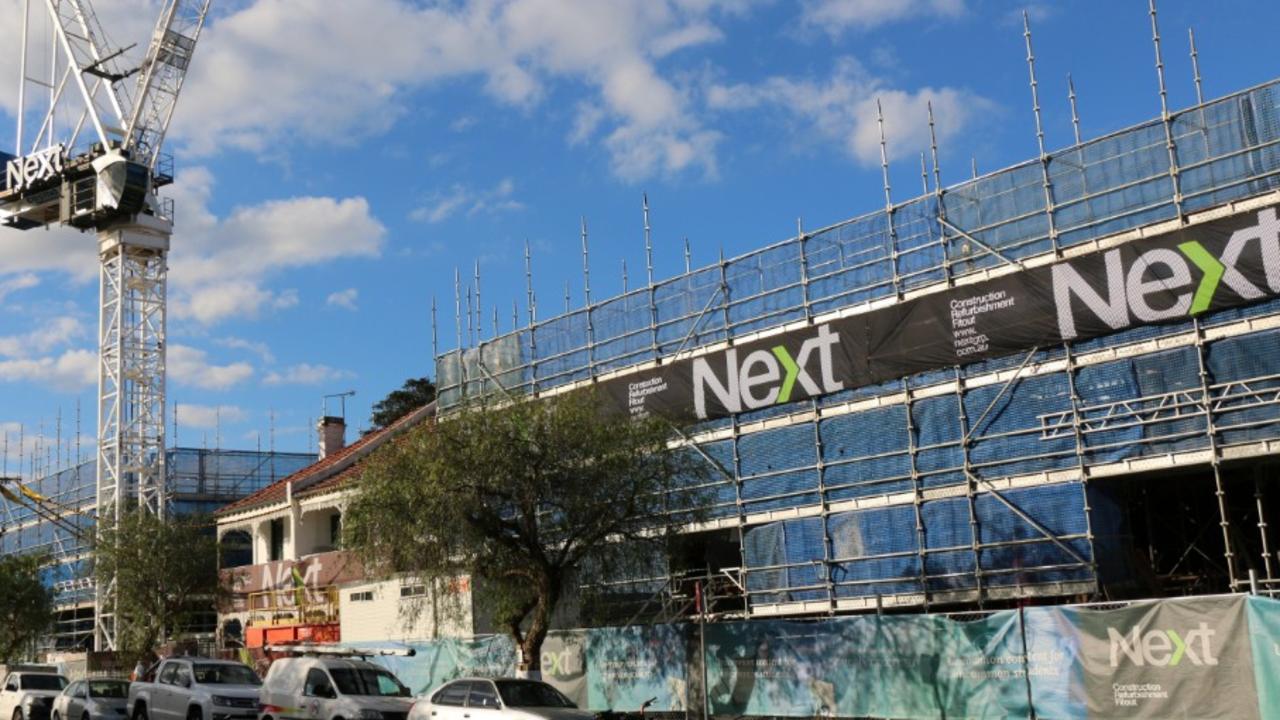
Next
In April, Sydney-based builder Next, which specialised in aged care, student accommodation and hospitality and hotel projects, blamed flooding, labour and material shortages and project delays from Covid-19 as the reason it went into liquidation, reported The Australian.
Dozens of tradies and other unsecured creditors were left owing $5 million, while employees were left short of $400,000 in entitlements although liquidators said it was a reasonable prospect they would see their money.
Next had been working on $35 million student accommodation project in Kensington in Sydney’s southeast, which is now in limbo, as well as a 100-bed aged care facility near Penrith.
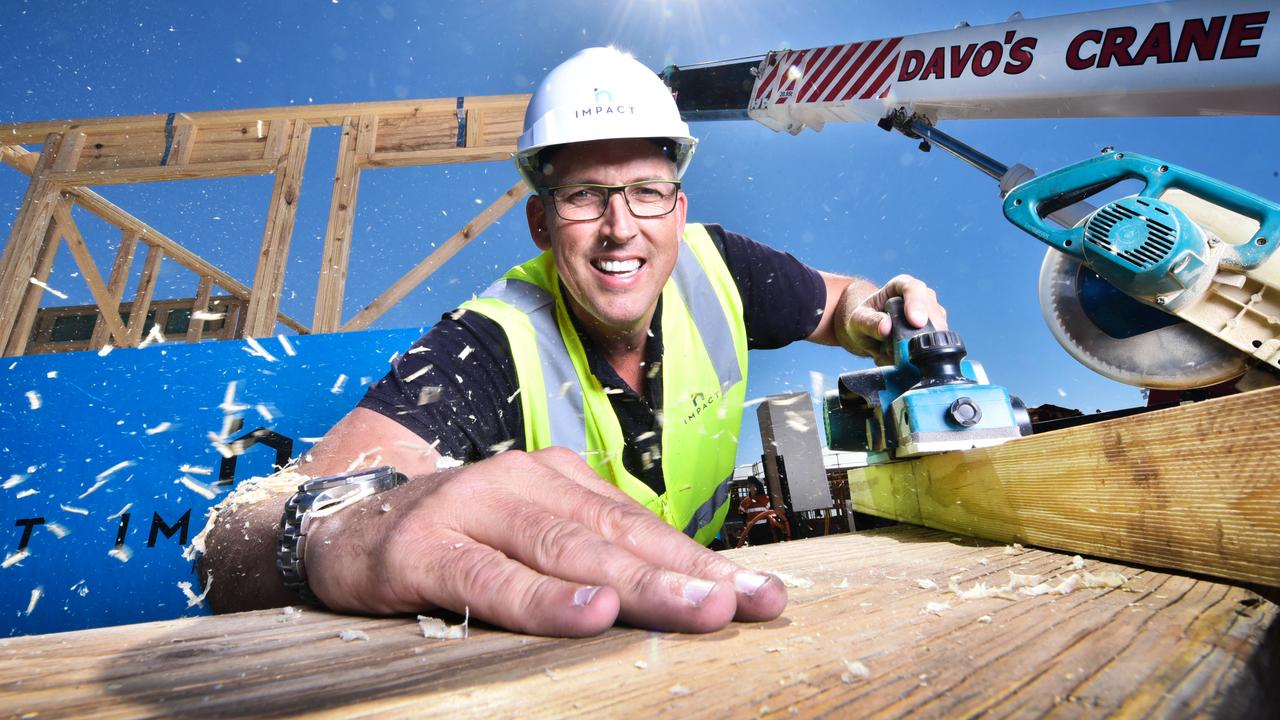
Privium
In December, Queensland home builder Privium went bust. But it emerged that added to the industry’s general woes, Privium had also made an ill-advised $3 million punt on cryptocurrency.
Liquidators FTI Consulting concluded Privium had likely been trading while insolvent since late August 2021.
At the time of the collapse Privium chief executive and founder Rob Harder said he was “deeply sorry”.
Privium had acquired Bartercard dollars and converted them into a cryptocurrency called Qoin.
Gold Coast-based Qoin is part of the same company as Bartercard.
“Based on our investigations into the nature of Qoin, it is evident that it is an extremely illiquid asset with its sale limited to a few hundred dollars each day,” the FTI report said.
“Consequently releasing this asset is extremely difficult, if not impossible”.
The administrators went on to state that it was “possible a breach of certain directors duties could have accrued as a consequence of this transaction”.
It wasn’t just the crypto investment that raised eyebrows.
During 2021, four payments were made by Privium to a Christian charity called Love Your World totalling more than $530,000.
Talking to the ABC in March, the regional manager for Master Builders Gold Coast Adam Profke said the industry was nervous due to supply chain and cost issues
“It’s the perfect storm.
“A 30 per cent cost of construction increase over the past 12 months would be a fairly conservative number.”






